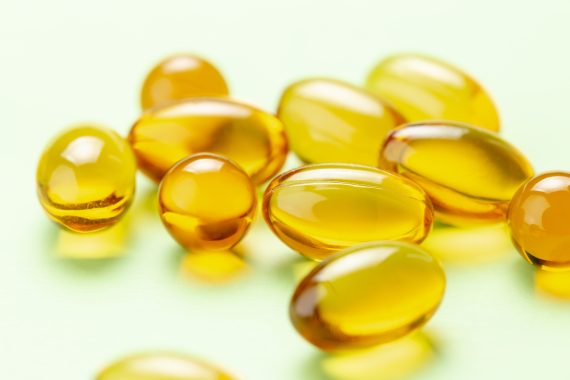Taking vitamin D does not protect against Covid or other respiratory tract infections, two large studies have concluded.
One UK trial of 6,000 adults that ran for six months in 2021 found that daily vitamin D tablets had no impact in those who had been found to have low levels than in the control group who were not taking the supplement.
Among the half of participants who were tested for vitamin D with a finger prick blood test, 2674 had suboptimal 25(OH)D concentrations less than 75 nmol/L and received vitamin D supplements of either 800IU a day or a higher dose of 3200IU a day.
At the end of the six months, 4.6% of those in the no vitamin D group had had a doctor confirmed acute respiratory tract infection of any kind compared with 5.7% in the lower dose group and 5% in the higher dose group, researchers reported in the BMJ.
For Covid confirmed with a swab test, 2.6% were infected in the no supplement group, 3.6% of the low-dose vitamin D participants and 3% in the higher dose group.
A second large Norwegian study of 34,000 participants half of whom were given daily cod liver oil supplements also showed no difference with confirmed acute respiratory tract infections or Covid-19.
Also writing in the BMJ, the researchers noted at the start of this study 86% of those who were tested already had adequate vitamin D levels and were relatively young and healthy.
Both teams noted the findings should also be interpreted in the context of a highly effective vaccine roll out at the time the studies were done.
Although links had been made with good vitamin D levels and reduced risk of infection early in the pandemic, the results are also in line with previous research that found no preventive effect of vitamin D on risk of Covid-19, the researchers said.
In a linked editorial, Professor Peter Bergman at the Karolinska Institute in Sweden, pointed out that vaccination is still the most effective way to protect people from Covid-19, and vitamin D and cod liver oil supplementation should not be offered to healthy people with normal vitamin D levels.
Instead, a pragmatic approach could be to focus on risk group who could be tested before supplementation, including people with dark skin, or skin that is rarely exposed to the sun; pregnant women; and elderly people with chronic diseases.
‘For those with inadequate vitamin D levels (<50 nmol/L), supplementation with 1000-2000 IU/day could be a safe, simple, and affordable way to restore vitamin D levels, improve bone health, and take advantage of any possible protective effect against respiratory tract infections,’ he said.
In the first year of the Covid pandemic, UK researchers had found that more than 80% of hospital patients with Covid-19 lacked vitamin D, recommending that deficiencies in at-risk individuals should be identified and treated.
However, a rapid review of evidence by NICE in November 2020 found there was not enough evidence to support taking vitamin D solely to treat or prevent Covid-19.
Pulse October survey
Take our July 2025 survey to potentially win £1.000 worth of tokens















Big surprise?
Obese people dilute vitamin D into their fat, so have low levels.
Frail people don’t get outside as much and have lower levels.
Junk food usually has no vitamin D.
So vitamin D is just a proxy marker for obesity, frailty and poor nutritional status, always linked to heart attacks, strokes, dementia, cancer, falls, COVID and more. Yet never successful in randomised trials.
Would love the results for a similar COVID study where two groups of those with pre-diabetes are randomised. One with usual “healthy diet” advice and another with “low carb / no junk” advice.
But with so much money at stake for the food industry and pharmaceuticals for diabetes, where is the profit in simple and successful dietary advice? The elephant in the room is ignored once again.
Vitamin D supplements also useless for bone health:
https://www.nejm.org/doi/full/10.1056/NEJMoa2202106